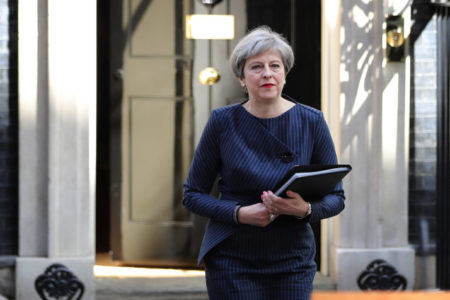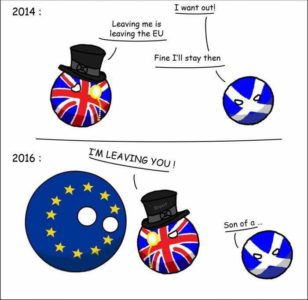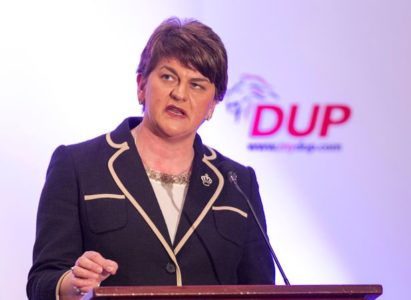Brexit & British Election:
Inconclusive election results further complicate future Brexit negotiations

In the wake of the UK Election, questions of the future of Brexit are swiftly resurfacing. May’s loss of a majority government, tentative coalition with the DUP, and a lack of support for a “hard Brexit” all pose hurdles for the Tories in attaining the deal they had once hoped for. Officials from the European Union and May have both confirmed they still plan to follow the original Brexit negotiations timeline. However, there is doubt among many that this is possible less than two weeks after the inconclusive election results. As the public increasingly calls for May’s resignation and the UK’s public debt is expected to rise, their doubts are proving to be reasonably founded.
May’s loss of a majority will make it very difficult not only to pass any legislation, but just to keep her party in power. Even with the backing of the Democratic Union Party, May’s government would only hold 328 seats. This is just two more than what is needed for the confidence of the house. MPs from May’s own party are critical of her Brexit plans and have been outspoken with their concerns. This is especially true of the newly elected Tory MPs coming from Scotland, a nation which largely voted to remain.

The DUP also has differing interests from May surrounding ideal Brexit conditions. The party’s leader Arlene Foster stated that her party primarily wants to avoid a hard border with Ireland. In order for this to happen, a “hard” Brexit is not possible. This is all to say that if May decides to go down the road of a coalition with the DUP, she will have to bend on some of her stricter Brexit policies.

Regardless of all of this, a hung government is simply not in a position to begin a meaningful negotiation process. On the other hand, the talks scheduled for this week are more so about format and content. Without anything substantive being discussed, it is plausible that this portion of precursory talks could begin under current political conditions. The European Union has made it clear that despite the unclear election results and the chaos on Downing Street, they do not plan to alter the timeline of Brexit.
It seems apparent from the information that is available that the UK’s national position on Brexit has shifted. May, according to various MPs, has claimed to be in “listening mode” and is ready to compromise. Experts have claimed a cancellation of Article 50 to be near impossible at this stage. May would be wise to put this time of listening to use and collectively create and present a position paper on the UK’s Brexit plan if she wants her government to be taken remotely seriously by their own citizens and the EU as a whole.
The UK stands to only lose more the longer they have to delay Brexit negotiations due to the hung parliament. The UK can show through a concrete action like a position paper that despite the quagmire created by the election results, they are capable of presenting a unified front needed to settle Brexit. In the words of Donald Tusk:
“We don’t know when Brexit talks start. We know when they must end. Do your best to avoid a “no deal” as result of “no negotiations”
